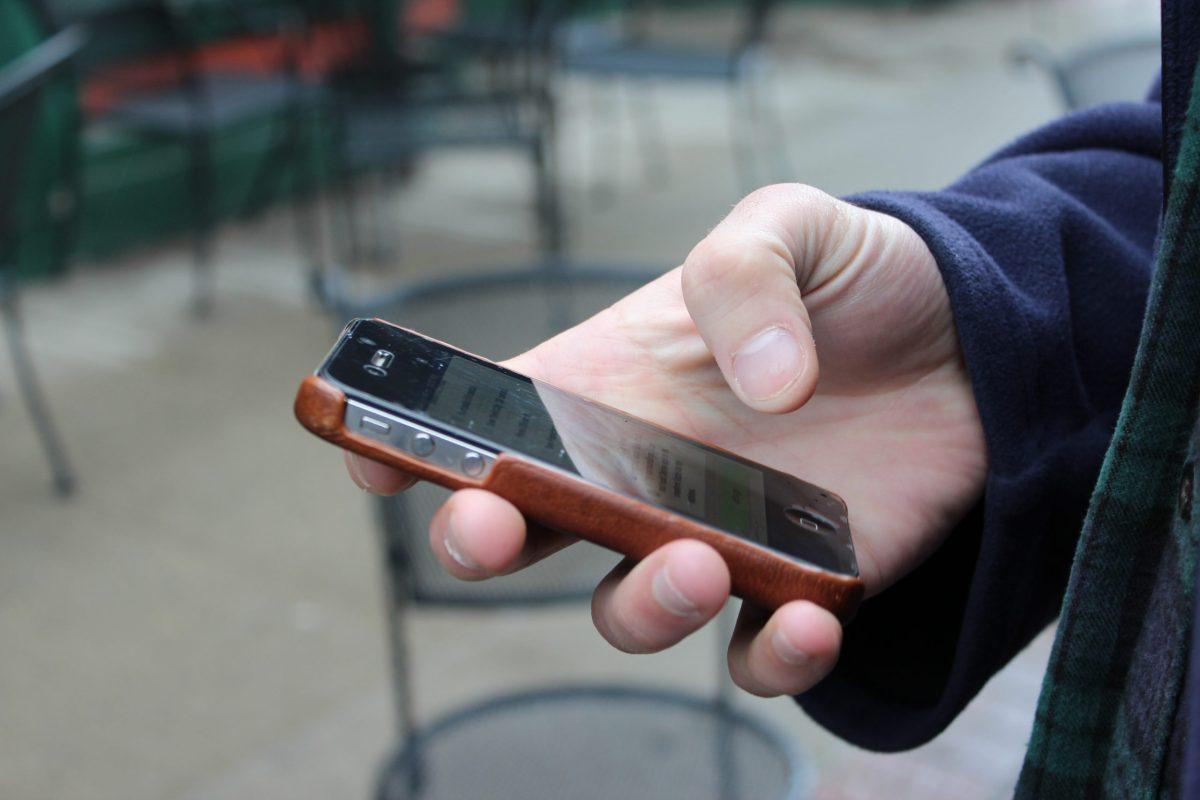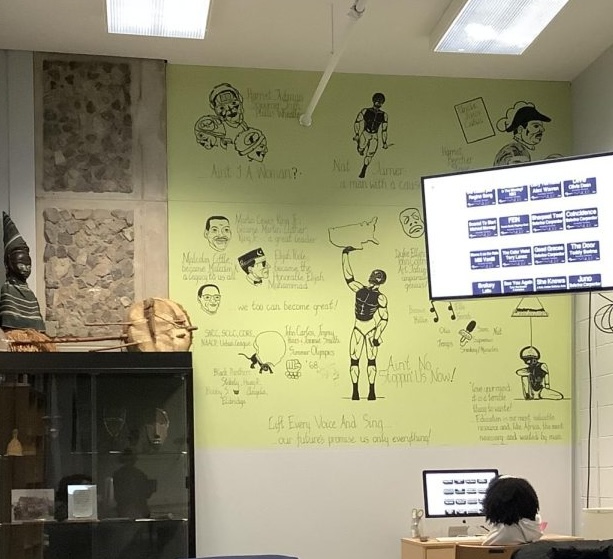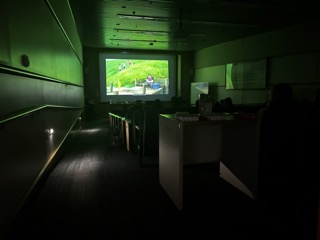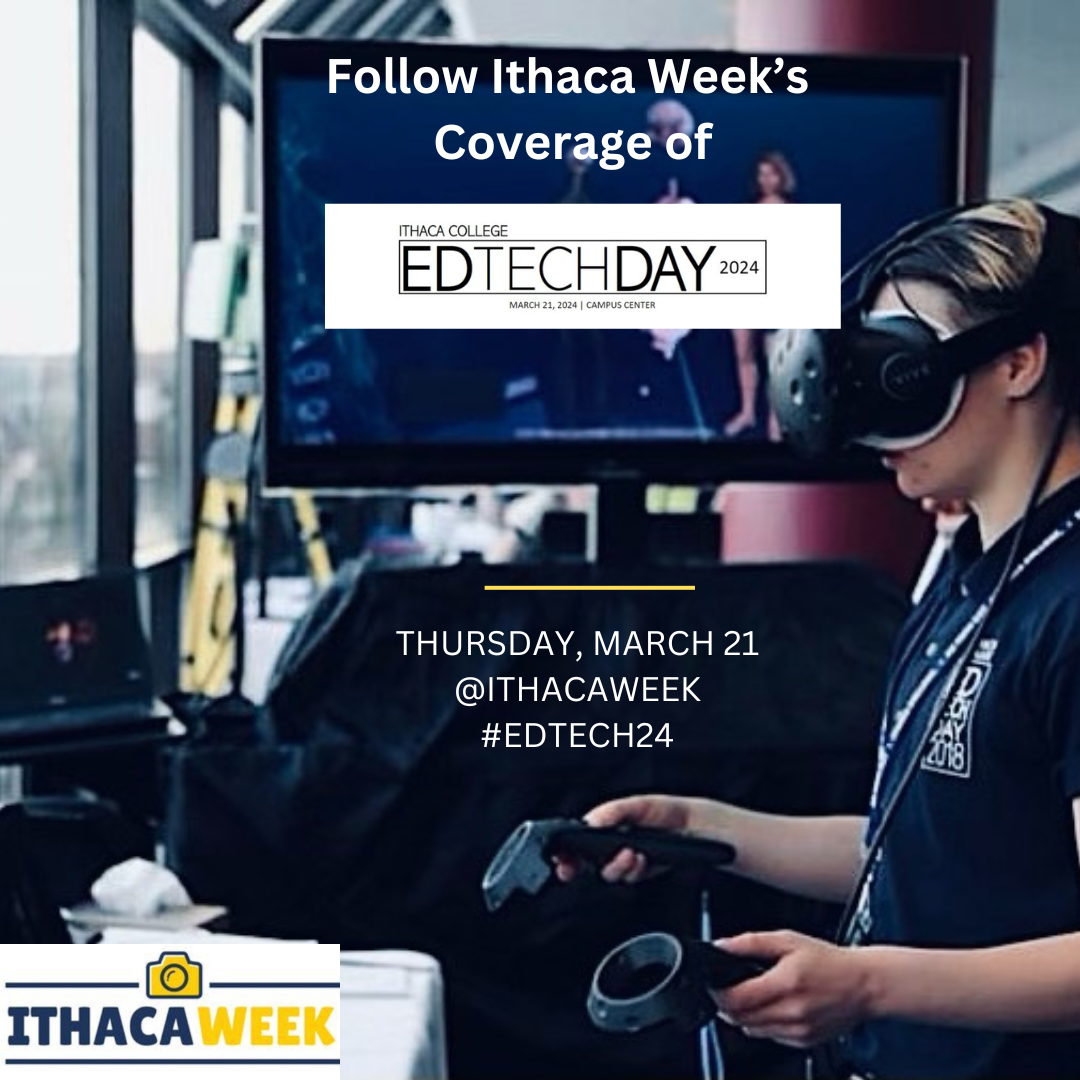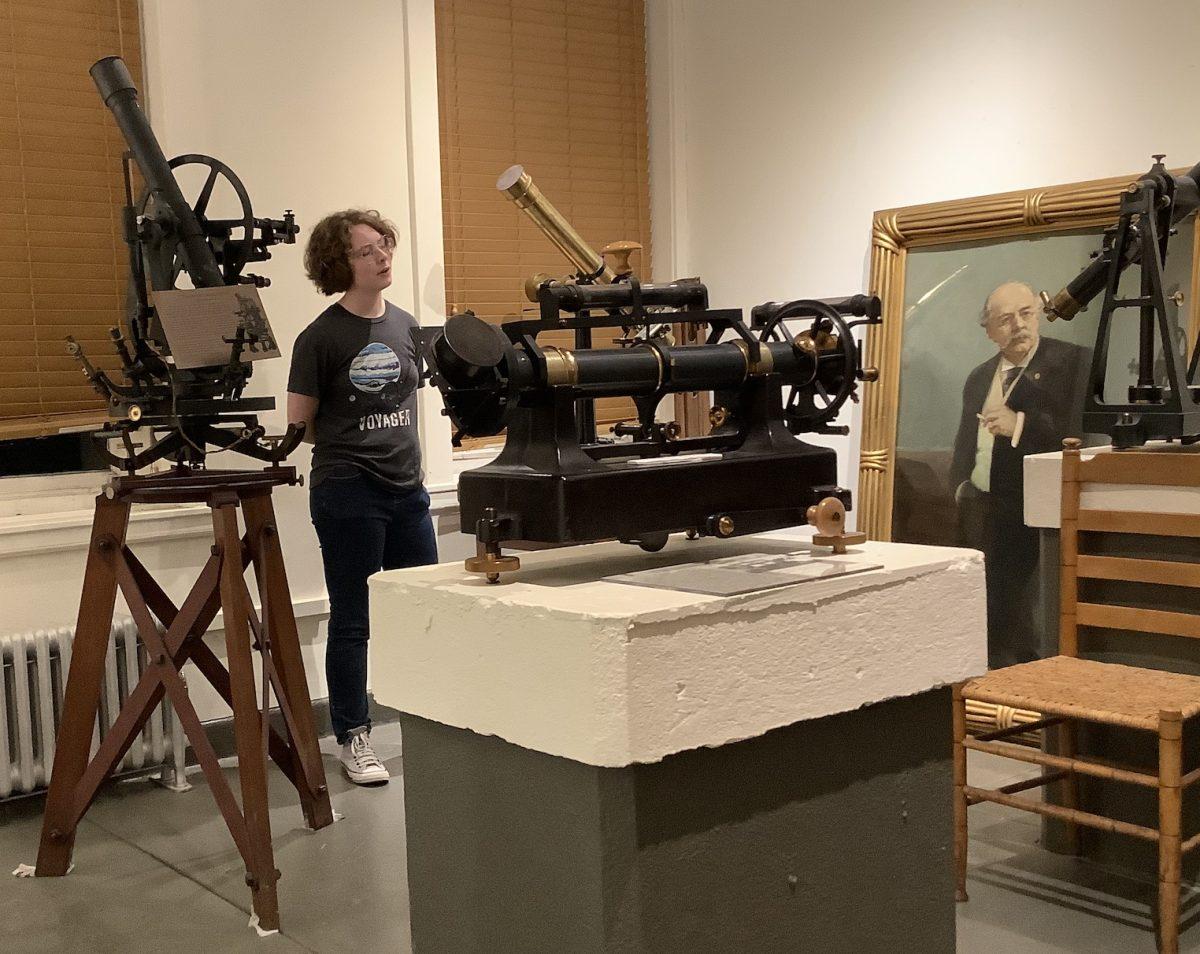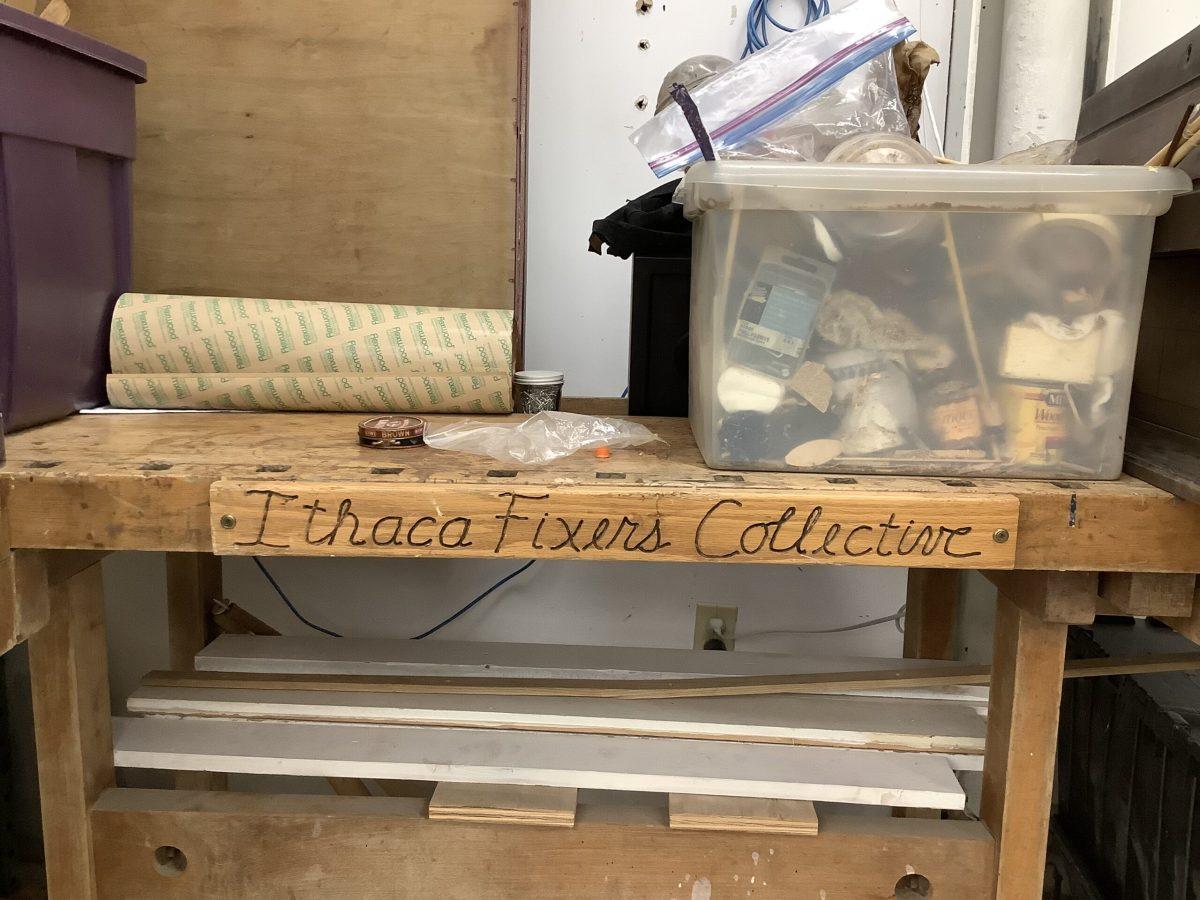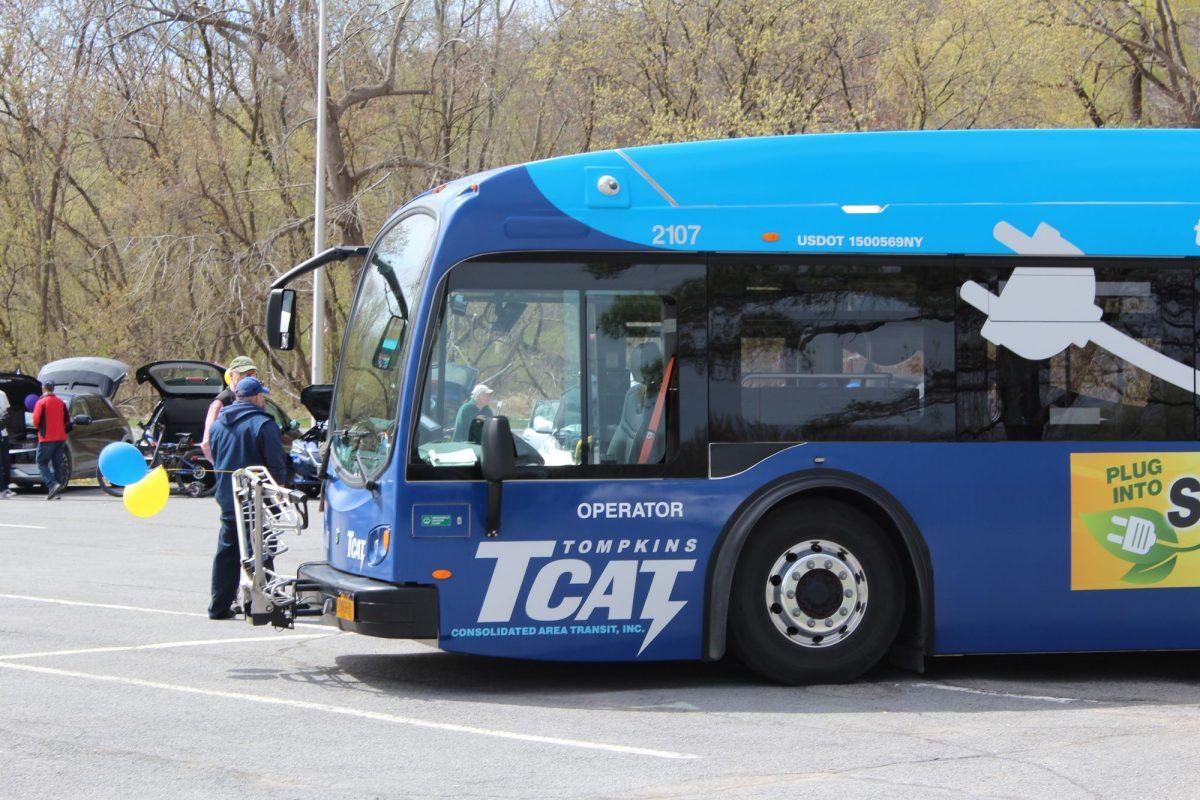Find a cat. Move South. Follow somebody wearing a hat.
[swfobject]1422[/swfobject]
These are just a few of the tasks prompted by the “urban deck” of cards via Dérive, an urban exploration application created by Babak Fakhamzadeh, a web-application developer currently living in Uganda, and Eduardo Cachucho, an architect living in Belgium. Together they won the World Summit Award in the m-Tourism and Culture category for the Dérive app in 2012.
“By presenting the user with a series of randomly sequenced generic task cards, the user is nudged into experiencing his environment in a way he/she otherwise would not,” Fakhamzadeh said.
In the near future, locals will be able to explore the city of Ithaca and the Commons with spur-of-the-moment prompts, as Ithaca will have its own deck of task cards.
“We remotely facilitated a group of students to build their own deck in relation to this year’s Fingerlakes Environmental Film Festival theme of ‘mobilities,’” Fakhamzadeh said. “The deck is not yet finalized, but it’s looking rather excellent.”
The app featuring Ithaca is one of three city-specific Dérive apps, and the only one in the US that is working with students. Patricia Zimmerman, co-director of the FLEFF (which featured a workshop with the festival interns building the app,) said it is a unique app that combines imaginative and critical elements for an embodied experience.
“It’s a very significant partnership for Ithaca College and the Finger Lakes Environmental Film Festival – and a great opportunity for these students,” Zimmerman said.
Nora Noone, freshman Integrated Marketing Communications major at Ithaca College and a team of students are in the process of completing the deck.
The effect on the Ithaca community will be more intrinsic, as individuals will be “developing a different, broader, understanding of their city,” Fakhamzadeh said.
“I’ve been here way too long,” said Slothower. “I’m just about ready to get out, I think.”
Slothower downloaded the app last week to rediscover the city he knows so well.
“This kind of randomness can do good things for the relationship between people and their cities,” said Joseph DiMento, an urban planning expert and law professor at the University of California. “I love to explore urban places in an unorganized way — just the opposite of visiting Disneyland or staying only in planned communities. Unfortunately in a number of American cities people may be apprehensive about following the task. If, in general, ignorance breeds suspicion and fear, this device may be a nice counter.”
Exploration apps like Dérive “[bring] different urban dimensions to the front, and [enhance] the urban experience with psychogeography,” describes the The Pop-Up City, a blog based in Amsterdam that explores trends and designs that shape the city of the future.
It’s this “fascinating ability to open cities” and reinvent familiar spaces that draws participants to Dérive, Fakhamzadeh said.
As of April 15, 1,254 dérives have been started (1,071 of which are public), 12,063 cards have been drawn and 307.161 km recorded worldwide.
Dérive is a tool that intertwines the subjective and objective experience of the physical space of a city, allowing users to escape the mundanity of everyday life, Cachucho says on the site’s video.
“It was fun because, usually, when I walk around I know where I’m going and what it is I want to do, so it got me to look around and search for things, rather than just see what I already expect to see,” Slothower said.
Dérive app changes conventional tourism, Fakhamzadeh explains. The app doesn’t direct users to the most popular sites or destinations; it gives meaning to the experience and can help shape tourism in Ithaca, as well as any city.
“Mobile applications are quickly becoming important tools for helping visitors, students, and even locals better understand and appreciate new places,” said Gary Ferguson, director of the Downtown Ithaca Alliance. “Such apps have a definite place here in Ithaca and we are actively working to create our own and link into others that will add benefit to our community.”

